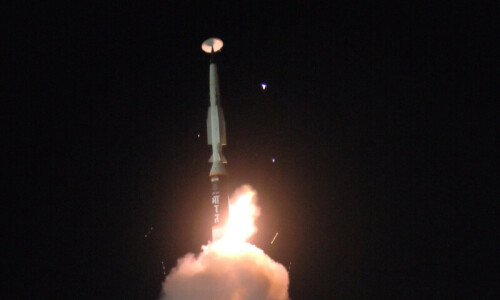
THE unfinished agenda of partition remains unfinished more than seven decades later. Pakistan calls Kashmir its jugular vein, while India calls it an integral part. There have been discussion, debates and plans, like the Dixon Plan of 1950, but things have only gone from bad to worse.
Pakistan’s former foreign minister Khurshid Mahmud Kasuri in his book, Neither a Hawk nor a Dove, has discussed in detail the ‘out of box’ solution presented by General Musharraf in a non-paper. The book says the then Indian prime minister Atal Bihari Vajpayee and his national security adviser Brajesh Mishra were forthcoming to the proposal which called for demilitarisation and self-governance in Jammu and Kashmir (J&K), leading to a final solution. But, domestic crisis in Pakistan during lawyer’s movement of 2007, and general elections in India derailed progress on the proposal.
Prior to that, Agra summit of July 2001 was another attempt to seek some sort of understanding between India and Pakistan on the issue, but it proved to be a fiasco. In fact, Agra summit is the only one in the context of bilateral ties which failed to produce any joint communique.
The unfinished agenda of J&K needs to be analysed by taking into account major actualities. One major party to the conflict of J&K, which also controls two-third of the territory refuses to consider it a pending issue between India and Pakistan. It was India which had approached the UN Security Council when the first war between India and Pakistan on Kashmir took place in 1948, and agreed to the holding of plebiscite but later had a change of mind.
While Pakistan terms Kashmir its lifeline, India considers it an in integral part. The struggle continues.
Pakistan’s military attempts have proved counter-productive. The Simla pact binds India and Pakistan to respect the sanctity of the line of control (LoC) and to resolve all outstanding disputes bilaterally. In October last year, when the Jammu & Kashmir Liberation Front (JKLF) announced to cross the LoC in order to express solidarity with people in the occupied valley, Prime Minister Imran Khan asked them not to resort to any such activity.
Recently, Pakistan foreign minister asserted that Srinagar is Pakistan’s destination, but he did not explain how Islamabad would achieve that objective. Realistically speaking, had Pakistan been politically stable and economically strong, its claim over Kashmir would have been achievable.
The option of going to war with India exists despite the nuclear dimension, but the Pakistani state will have to work out its options and preferences rather realistically.
It is true that India is facing serious political crisis after the promulgation of Citizen Amendment Act (CAA) in December 2019 and its more than half-a-million military has not been able to quell the Kashmiri movement of self-determination, but even then there is no indication that India will reverse its actions.
Pakistan will do well to convince the international community, particularly the permanent members of the UN Security Council, about the relevance of Kashmir as the unfinished agenda of partition. If Kashmir is a major flashpoint and tends to threaten regional and international peace and security, Pakistan can call an emergency session of the UN General Assembly and a meeting of Security Council to discuss the issue.
In order to seek justice, particularly since the arbitrary Indian act of August 5, 2019, Pakistan can approach the International Court of Justice (ICJ) in order to submit its case on Kashmir.
The vision of the founders of Pakistan about Kashmir is still unaccomplished. Even after more than seven decades of the emergence of Pakistan, Kashmir is still called the missing ‘K’ of this country and, as things stand today, there seem to be little possibility of transforming the age-old dream of Kashmir becoming a part of Pakistan into a reality.
The writer is Meritorious Professor of International Relations and former Dean Faculty of Social Sciences, University of Karachi.














































Dear visitor, the comments section is undergoing an overhaul and will return soon.